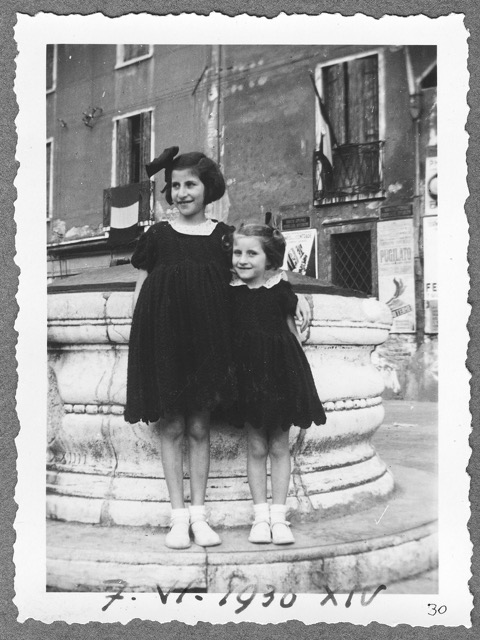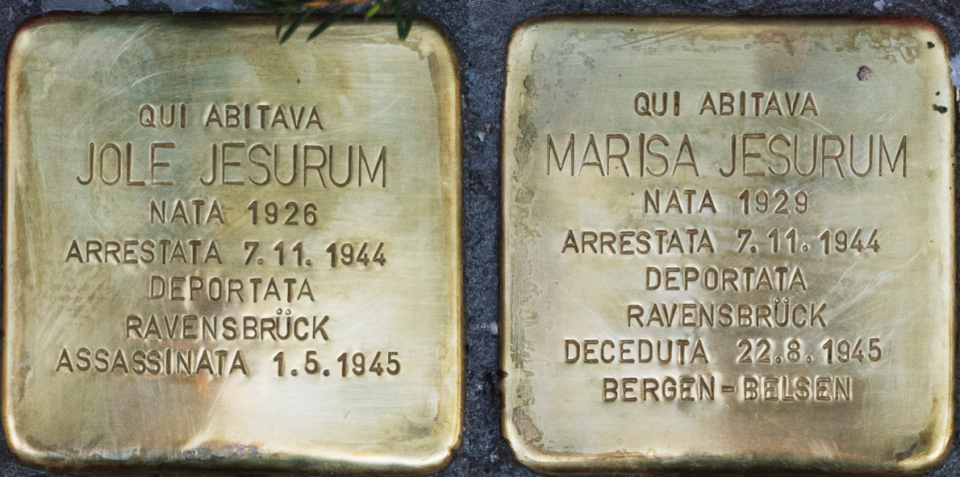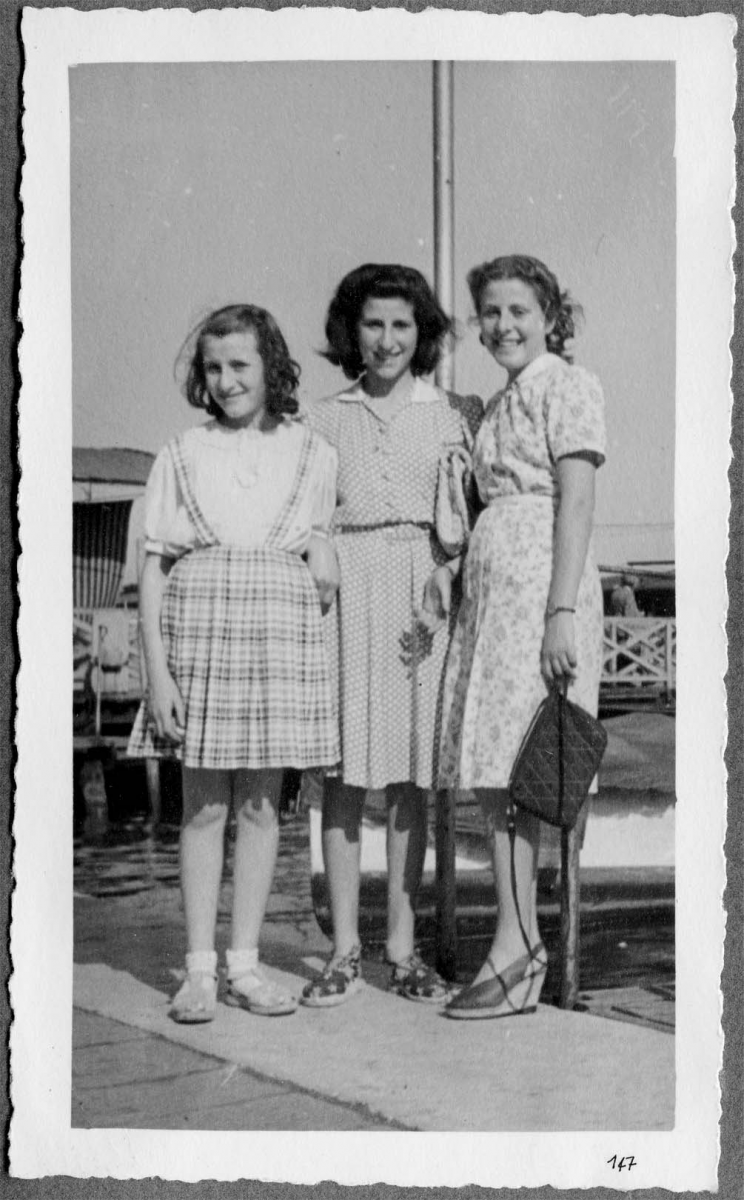
Jole (15/08/1926, Venice) and Marisa (24/12/1929, Venice) were daughters of Arrigo Giuseppe Jesurum and Elvira Starita.
Marisa had just turned 14 years old a few months before when she was arrested in Zianigo di Mirano on November 7, 1944, along with her father and sister Jole. Their two other sisters, Clementina (1924, Venice) and Ileana (1928, Venice), escaped arrest.
Imprisoned at San Sabba (Trieste), Marisa and Sole were deported by convoy on 28 November 1944 to Ravensbrück. When the camp was evacuated in April 1945, the women were taken, with a long “death march”, to Bergen Belsen. Then nothing further was known about them.
After the war, their sister Clementine desperately sought news of them.
Marisa was seen by multiple people on a hospital train bound for Sweden. Last night we were with Captain Venier, one of them, and I thought I was too sick, suffering too much and feeling broken inside. She said she was very seriously ill, poor little sister, but we don’t delude ourselves about her. Marisa, dear darling, come back, I beg you. Don’t drive me crazy, be brave, give me strength, fight, hold on, win. Oh defeat death, drive her away, send her away!W[…]hat about Jole, my little Jole? Nothing, absolutely nothing. And you Dad, do you still live? Are you still here suffering, to torturing yourself like you have all your life?
(From Clementina’s diary, Venice 24 August 1945)
Jole died in Bergen Belsen on 1 January 1945. On Marisa’s death there is the testimony of an Italian soldier, reported by the historian Bruno Maida.
At a small railway station in Germany, a group of former military internees waited in August 1945 for a train to take them home. One evening a convoy stopped, but they could not get on because it was a hospital train and housed women who came from Bergen Belsen. A soldier asked if there was anyone who spoke Italian and pointed him to a woman. In the military officer’s eyes she appears ageless, she could be between 18 and 70 years old: a hospital gown draped on a skeletal body and leaving uncovered a hollowed-out face and a head without hair. A petty officer offered her chocolate but a nurse stopped him, demanding that they let her rest. “It doesn’t matter — said the woman — let me speak Italian. Maybe it’s the last time!”. She recounted that her name was Marisa, she had been captured in Venice in November 1944, following a denunciation by Italians. The military asked her a question but she interrupted him: “Why are you calling me ‘madam’? I’m a little girl, I’m 14!”. The soldier asked nearby houses if they had flowers because he wanted to give them to Marisa, but the inhabitants refused, saying, “One doesn’t give flowers to the Jews!”
(Bruno Maida, Children’s Shoah. La persecuzione dell’infanzia ebraica in Italia 1938-1945, Einaudi, 2013, p. 288)

